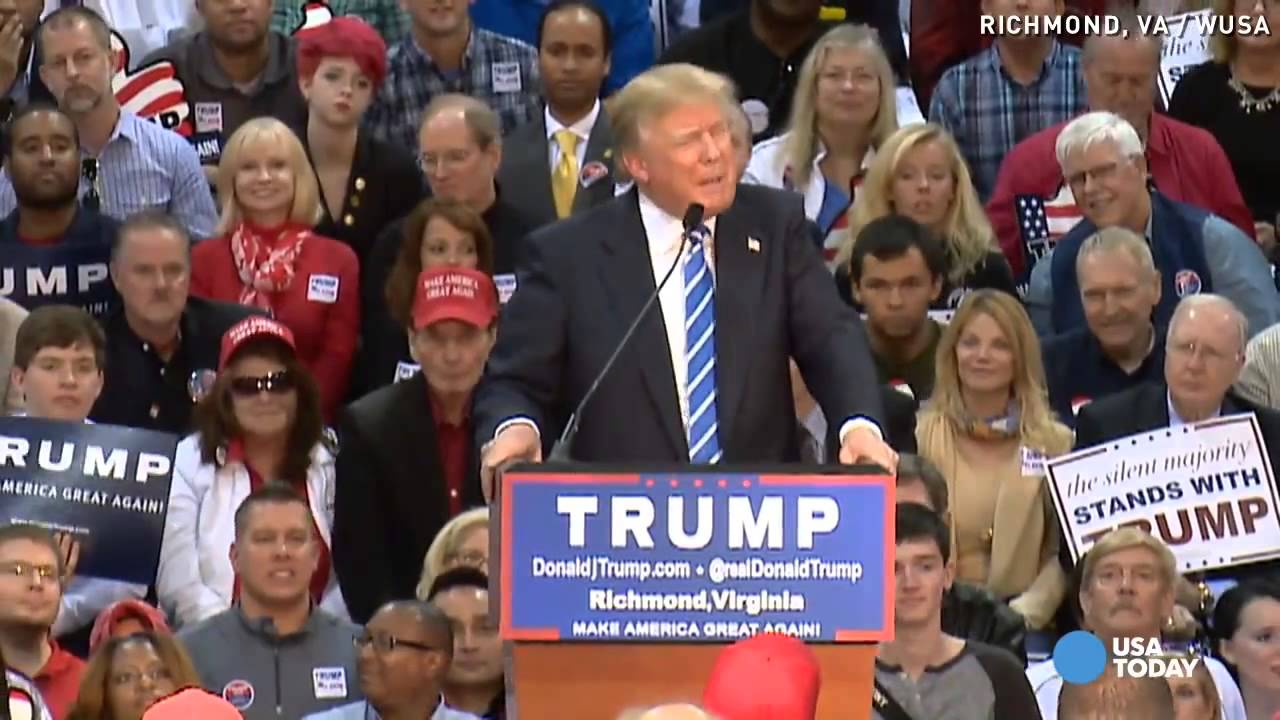The poll surveyed 1,167 registered voters in Virginia, and found that a significant “loyalty gap” would exist between the Republican and Democrat presidential frontrunners among their respective base voters, should they both be nominated.
About 90% of Democrats who voted in their March 1 primary say they’d back Hillary Clinton if she defeats Bernie Sanders to win the nomination. By contrast, only 67% of Republican primary voters said they would back Trump.
Interestingly, 25% of all Republicans suggested they would vote for Hillary or a third-party candidate before they’d vote for Trump. This is worse than simply staying home. Republican voters who sit on their couches rather than get out to support the nominee make it very hard for Republicans to win elections. Republicans who get up off that couch to go vote for the Democrat candidate make it essentially impossible for the GOP to win.
It’s unclear to what extent this disenchantment with the frontrunner could affect Republicans running for Congress in Virginia this year. The likelihood that incumbents in competitive districts would be harmed by being on the same ticket as Donald Trump means that those incumbents will likely take steps to publicly distance themselves from him in an effort to stave off defeat. This, in turn, would exacerbate the split within the Party, and put pressure on other elected officials and party leaders to pick sides.
The poll shows Hillary Clinton trouncing Donald Trump in Virginia by 11 points, far more than the the 4-point Virginia loss suffered by Mitt Romney in 2012.
How do we avoid this outcome? There are only two ways. First, Donald Trump could reinvent himself into a candidate that was attractive to a much larger segment of the electorate than currently feel like they could support him. This seems unlikely to happen, though Trump has consistently been underestimated over the past year, so maybe he can pull it off. But, in any case, this is beyond our control.
What’s not beyond our control is option 2: nominate someone other than Trump. In Virginia, each of the 11 Congressional Districts will have Republican conventions this month and in May to elect three delegates each to the Republican National Convention in July. Virginia’s delegation will be bound in proportion to the results of the March 1 primary, but only on the first ballot of the convention. If Trump doesn’t have a majority of those bound votes on the first ballot, Virginia’s delegates will be free to choose between any of the candidates qualified to have their names placed into nomination. That’s why who our national delegates are is of the utmost importance.
Those whom we choose to be delegates to our national convention could, quite literally, mean the difference between victory and defeat this November.

